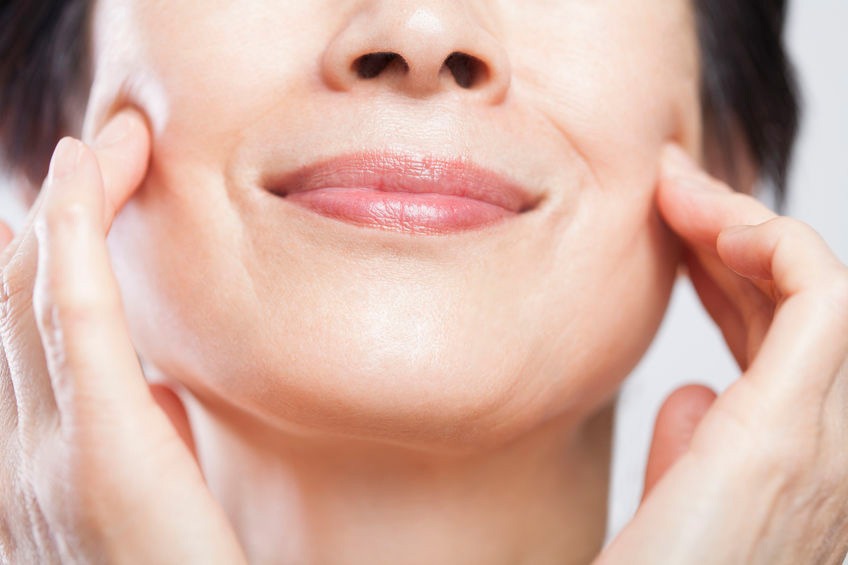
7 Natural Remedies to Help Aging Skin
Visible signs of aging are inevitable. Like it or not, time catches up with us all. Luckily, there are science-based, natural ways to help aging skin. They'll let you preserve your complexion, so you can look your best longer. (And none of them involve silly, do-it-yourself fruit pulp and yogurt face masks!)
What causes the skin to age?
Skin ages because, over time, it doesn’t work as well. In your 20s, collagen (to make skin firm), elastin (to give it elasticity) and glycosaminoglycans (to keep it hydrated) are all working at full throttle.
But after age 20, your skin produces 1% less collagen every year. For the rest of your life. In addition, your skin’s elastin fibers get thicker and more clumped together. As a result the complexion is less firm, less tight, and you can see the earliest appearance of tiny wrinkles and sagging.
By age 30, the skin’s natural exfoliation process has diminished by nearly 30%, causing dead skin cells to collect and stick together. The natural transfer of moisture from the underlying tissue to the surface skin has slowed, and fat cells have started to shrink. This robs your skin of its once youthful sheen.
By age 40, collagen production stops completely. And by age 50, most of us need in restoring the skin on our face, neck, and hands.
Why do some people age faster than others?
First and foremost, aging is genetic. In fact, a 2009 study of identical twins found that it is 60% hereditary.
In addition, men have a natural advantage when it comes to aging because their skin makes more collagen. They also have a tighter network of fatty tissue and elastin fibers, giving their skin more strength and elasticity.
But it isn’t all a matter of genes and gender. Bad lifestyle choices definitely play a role in how fast (and badly) your skin ages. For example, sun exposure leads to the early appearance of lines, wrinkles, dark spots, and sagging. So prevention is key. Apply an SPF of at least 35 everyday, all year round. And choose a product that protects against UVA and UVB. It’s one of the basic rules of responsible skincare. And it will help aging skin stay protected from sun damage.
Since UV rays give rise to free radicals – which, in turn, harm the skin – try to use facial products made with antioxidants because these restorative compounds combat the effects of free radical damage.
7 Natural Remedies to Help Aging Skin
Hydrate! Water is the foundation for youthful-looking skin because it flushes out toxins that cause aging. So drink at least 8-10 glasses daily.
Take advantage of vitamin C. For years doctors knew about its age-defying benefits. But efforts to add the ingredient to skincare formulas failed because the vitamin wouldn’t stay fresh for more than a few weeks. Then, a few years ago, came the discovery of “stablized vitamin C” (as ascorbic acid). Buy smart. Look for products that contain this ultra-active collagen booster.
Use a rose water toner. Apply after washing, to remove embedded dirt that’s clogging facial pores. This refreshing spritzer revitalizes aging skin by lending firmness and reducing under-eye puffiness. Mix 2 teaspoons rose water with 3-4 drops of glycerin and one-half teaspoon of lemon juice.
Treat your lips nicely. Get rid of their dry, dead skin cells so they can look instantly plumper and pinker. Mix ½ teaspoon of any ordinary moisturizing lotion with ¼ teaspoon fresh coffee grounds and ¼ teaspoon Kosher salt. Mix well, apply to your outer mouth area, and massage for about 5 minutes. Rinse clean.
Don’t switch skincare products too frequently. New skin cells are produced about every 30 days, so to see a real difference in texture, tone or clarity, you need to use any new product for at least a month. For products containing anti-aging ingredients, you need to wait even longer because the skin takes about 4 months to regenerate collagen and elastin.
Maximize sleep. During sleep your stress hormones drop to normal levels, giving your skin cells time to repair and rejuvenate from the day.
Minimize stress. Because stress raises your level of cortisol – that ugly hormone that breaks down collagen. So find ways to decompress regularly.
What’s the takeaway?
They say that at age 20 you have the face that nature gave you; by 50 you have the one that you deserve. With effort and commitment, you can work your way toward an amazing complexion. And you can keep it all your life!
